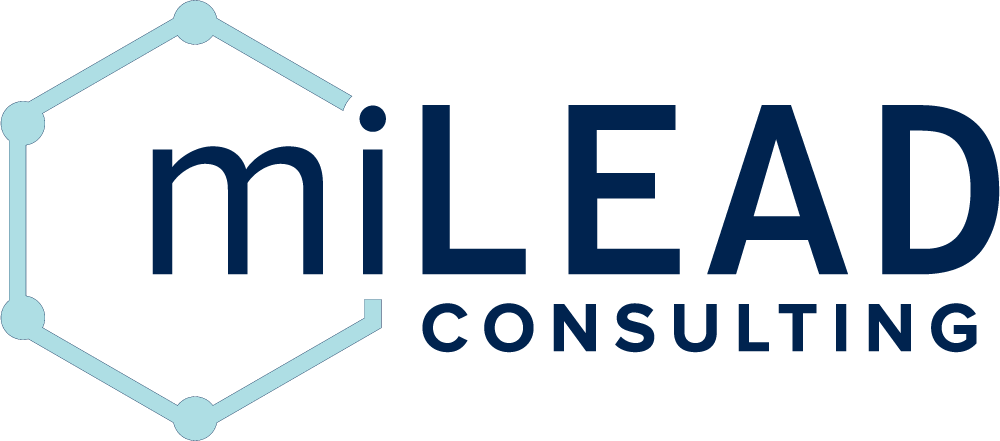Consultant Spotlight - December 2022
Natalia Harris
PhD Student in Biological Chemistry
How long have you been with miLEAD?
Spring 2022
What is the focus of your research?
The United States has a severe drug abuse crisis with approximately 21 million people suffering from substance use disorder in the past year. For perspective that is more than 250,000 times the number of people an average person meets in their lifetime. Kratom (Mitragyna speciosa) is a medicinal plant that has been used in Southeast Asia for hundreds of years to self-treat chronic-pain, opioid with-drawl, and depression. Due to these unique pharmacological effects, in the past decade Kratom has flourished in the U.S. with many users self-treating opioid use disorder and pain management. As the opioid epidemic continues to ravage across the nation with ever increasing rates due to the pandemic, we are in need more than ever of more dependable opioid substitution therapies. Kratom may be our key to developing safer opioid dependency medications through engineering the natural compounds within the plant, for the primary compound, mitragynine, has been found to be an effective pain reliver without producing an abundance of negative side effects experienced with traditional opioid substitution drugs (i.e methadone). Through methods of structural biology, biocatalysis, and protein engineering we have successfully derivatized mitragynine and have begun investigating the structure activity relationships of mitragynine and its analogs at human opioid receptors. Ultimately, mitragynine analogs have the potential to fast-track the development of new and safer treatments for opioid use disorders therefore permanently improving the lives of those affected.
What are your career goals?
As I traveled through half a decade of enhancing my research skills in biochemical curriculum, I faced the reality the general public does not trust scientific data. Whether it was through outbreaks of eradicated diseases due to vaccination fears, the vacancies of vital science leadership positions, or even our current handling of COVID-19 as a global pandemic; it is clear that our political leaders and general public do not trust scientists. As once a researcher who wanted to continue my career at the lab bench of a pharmaceutical company, I knew I had to go one step further to investigate global strategic design and accessibility of all drugs and treatments. The simplest solution to widespread distrust towards science is enhancing and expanding science education throughout the nation. Although this is easier said than done, it must begin with science leadership and representation in our government. Therefore, upon completion of my PhD in Biochemistry and certificate in Science and Technology Public Policy I plan to continue my scientific career as a leader in global development and drug design at a biotech company while maintaining a presence in science policy by acting as a liaison between industry researchers and Congress. Through networking with science, engineering, and lawmaking experts, my goal is to set up a long-lasting career of advocating for science education, therapy development and the betterment of future generations. I believe it is our scientific duty to step up as a leaders who ensure we leave a cleaner, more sustainable, socially ethical, and scientifically advanced world for future generations.
What roles have you played on projects?
I have served as a consultant on two project and am currently a Project Manager.
What led you to seek out milead?
After completing various informational interviews with University of Michigan Program in Biomedical Sciences (PIBS) alumni in careers of interest to me; there was one common thread between all of them: miLEAD. Many gave credit to miLEAD for a successful transition right out of their PhD into a competitive industry position, especially in the interview process. With that advice in mind, I decided to apply to miLEAD and it most definitely had paid off in enhancing my professional development.
Since joining miLEAD, what skills have you been able to develop?
miLEAD has really deepened my connection between scientific discoveries, business ventures and the real people that push these initiatives forward to have a direct impact on patients. As someone looking to make a positive impact to therapeutics in the opioid space, its often hard to visualize how all the blood, sweat and tears we put into our lab work can actually help patients one day. Through miLEAD’s training of interviewing and networking with experts across various life-science industries I’ve become well versed in what it takes to propel scientific insights into healthcare.
What has been one of your most rewarding experiences thus far working with miLEAD?
One of the most rewarding experiences was on my second consulting project. My entire team got the opportunity to travel to Chicago for the weekend to meet with the client in person for our project kick-off meeting. It was an invaluable experience to truly get to the know the client, interact in person, and bounce off ideas to each other for a full day. Even more so, traveling and spending this time with my team allowed for more 1:1 mentorship from advisors resulting in an overall more cohesive team. This trip gave me a little taste of what it might actually look like to be a life sciences consultant in the industry.



